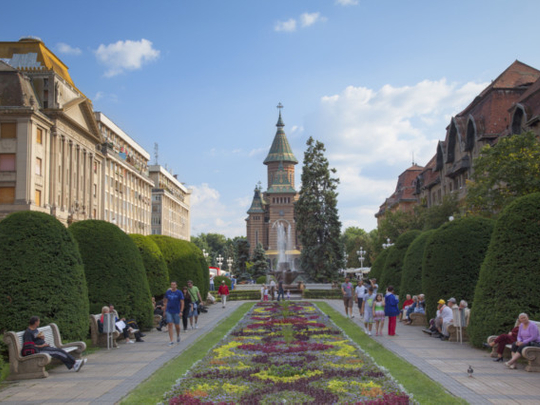
Dubai: Forget Paris and London, UAE travellers have of late been turning their attention to less explored destinations, such as Bucharest and Athens.
While holidaymakers are exploring new destinations, some are revisiting traditional holiday spots in the region that had been hit by political instability in recent years, travel experts say.
France and the UK are popular destinations for travellers in the UAE. But they have recently been adding Romania, Serbia, Greece, Cyprus, Spain, Malta, Vietnam and Morocco — destinations that have not traditionally been popular on their itineraries. The growing demand for such destinations is a result of greater awareness among travellers, said Kulwant Singh, managing director of Lama Group, a destination management company.
“The awareness is created through exhibitions in the UAE. Also, tourism boards are distributing promotional materials,” he said, adding that travel to new destinations can be boosted further with stronger air connectivity.
Holidaymakers from the Gulf Cooperation Council (GCC) countries have been increasingly travelling to Europe due to the political instability and security situation in some parts of the region, according to Rashid Aboobacker, senior consultant at TRI Hospitality Consulting.
Travellers have been visiting some of the destinations that had been hit by an economic crisis, such as Greece and Spain, because travel and accommodation rates there are “relatively cheaper” than the UK and France, he said.
Greece and Spain are on the road to economic recovery. Both countries have seen hotel occupancy levels grow this year. In May, occupancy rose 31 per cent in Greece to 70 per cent, while it increased by 6 per cent in Spain to 71 per cent, according to global consultancy STR Global. Average daily rate in Greece was up 2.3 per cent to 106 euros and grew by 5 per cent in Spain to 87 euros in the month.
Meanwhile, Aboobacker said that a few travellers have returned to Arab Spring countries. “I have not seen [visitor numbers] shift dramatically in the last six months,” he said.
Jeff Strachan, general manager at Insights Management Consultancy, a business consultancy with a focus on tourism, hospitality and service industries, echoed his views.
“We are still not seeing a rebound in visitation to Egypt from the GCC. It will take a long time for the numbers to return to those of pre-January 25, 2011 levels,” he said.
However Tarique Khatri, senior vice president of business development at travel search engine site Cleartrip, said that Egypt is “back in favour,” with most holidaymakers travelling to Alexandria and Sharm Al Shaikh. Airline bookings to Egypt in June were up 20-25 per cent compared to the same period in 2013, Khatri said.
“It seems to be, from an overall tourism point of view, stable at this time,” he said.
Egypt’s hotel occupancy fell 11 per cent to 48 per cent in May, while its average daily rate declined 1.3 per cent to EGP469.59, according to STR Global.












